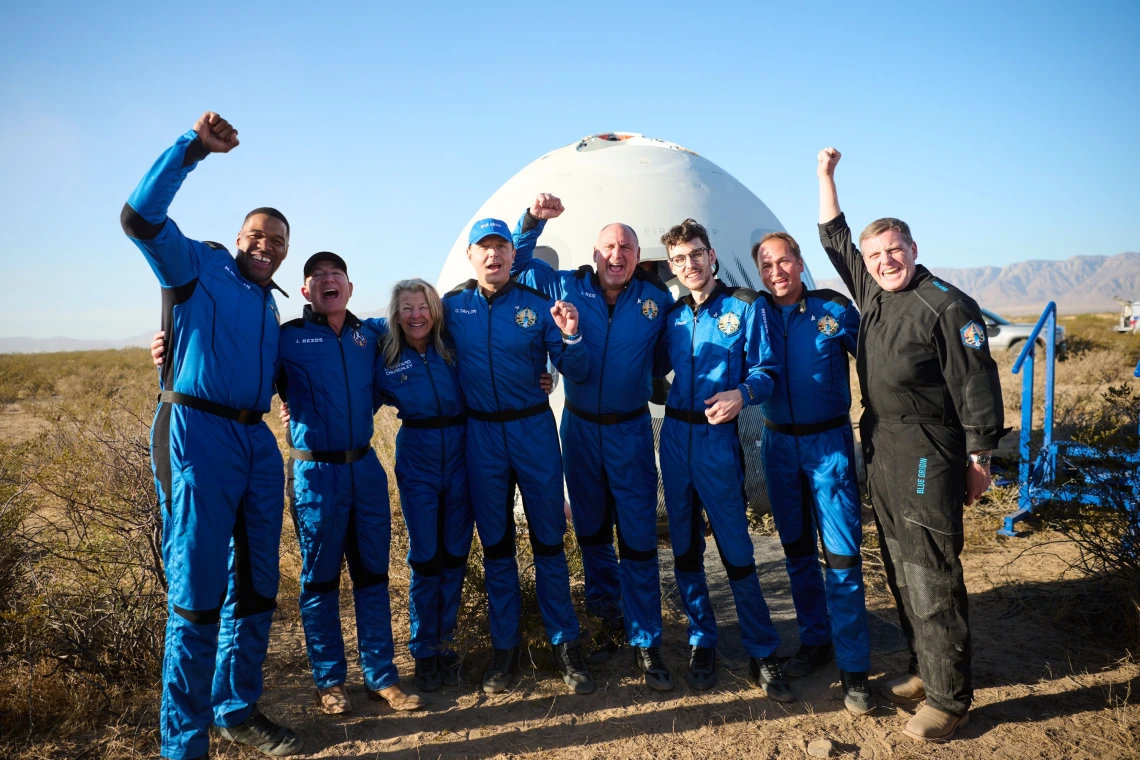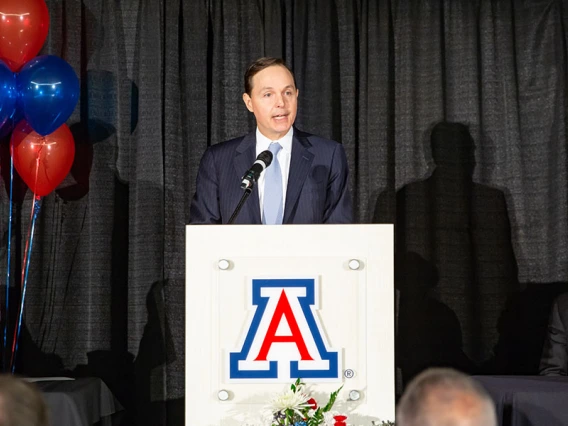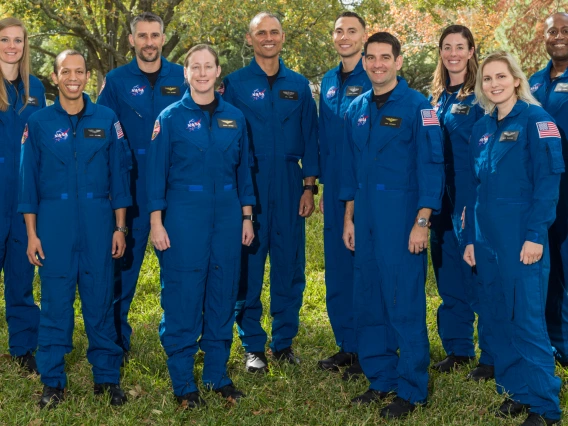Engineering Alum Travels to Space
Dylan Taylor, who earned a materials science and engineering degree from the UA in 1993, recounts his journey to space aboard the Blue Origin NS - 19 mission on Dec. 11, 2021. He calls the journey, which marked Blue Origin's sixth flight, the...

The crew of NS-19 celebrates after flying to space and back. Pictured from left to right: Michael Strahan, Jeff Bezos, Laura Shepard Churchley, Dylan Taylor, Lane Bess, Cameron Bess, Evan Dick, and Kevin Sproge. (Photo: Blue Origin)
The first word that came to mind as I looked down at the Earth from space was “portal.” I am not sure that is the right word, but after reflecting on it for a day or so, I haven’t come up with a better description. By portal I mean that when you are above the Karman Line, you realize none of what we call “reality” should exist. You realize that 99.999999% of the Universe is not “this.” I was struck by the notion that people live their whole lives thinking Earth, the air we breathe and the life we enjoy is natural and space is abstract. It is actually the exact opposite. What is natural is dark, cold and hostile space. We live just across the other side of a portal, in a magical place that is a miracle to exist at all. Earth is an oasis and that notion penetrates you very, very deeply from space.
The second thought that came to my mind is the extraordinary vulnerability of Earth. In an interview with ABC News right after the flight, I said that it was a feeling like you have for a small child or puppy. You have unconditional love for them, you see how precious they are, how beautiful they are, and their potentiality to be something even greater, but you also feel this deep sense that if you were to turn away and leave them there, that they would not survive on their own. It is an extraordinary feeling of stewardship. I was doused with this in such a profound way, I really don’t think it is possible to see Earth from space and not feel that sense of Earth’s vulnerability. It was an extraordinarily powerful feeling.
The third thought is just how thin the atmosphere is. Other friends of mine who have been to space have universally commented on this but it is even more striking than I was expecting. It is just a “hint” of something covering the Earth. Think of a thin film of dew on a leaf in the morning. It is shockingly thin and that further leads to this feeling of Earth’s vulnerability.
The final impression I had was how the earth sparkles like a jewel. Colors aren’t really colors from space. They are more like waves of perception. Your brain is constantly trying to find a file folder to compare it to, and there is no analog. Earth from Space simply “sparkles,” and you have to see it to believe it. Photos do not capture this.
All together, this was the most profound experience of my life. I had always believed Space was a tool for transformation. Now I know viscerally that this is true and I am even more committed to getting as many people as possible to experience its life changing effect.



